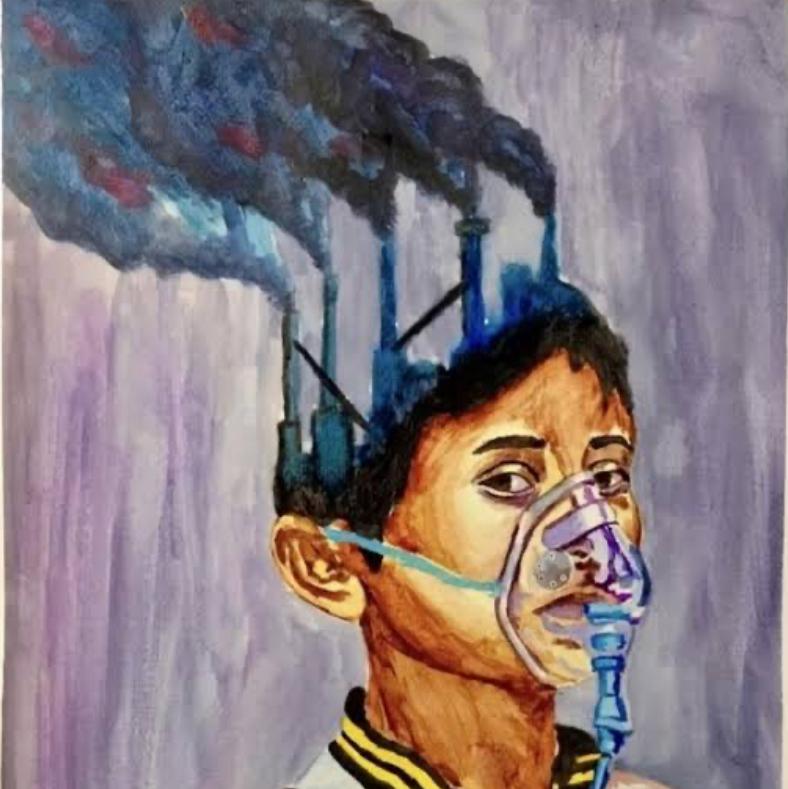
By Maila Ishtiaq
Fossil fuels are fashioned from the decomposition of buried carbon-based organisms that died millions of years ago. They invent carbon-rich deposits that are extracted and burned for energy. They’re non-renewable and presently deliver around 80% of the global sector’s power according to the U.S. Energy Information Administration. They may be extensively utilized to make plastic, metal, and a large range of merchandise. There are three kinds of fossil gases:
- Coal
- Oil
- Gasoline
When fossil fuels are burned, they release nitrogen oxides into the atmosphere, which contribute to the formation of smog and acid rain. The most unusual nitrogen-associated compounds emitted into the air with the aid of human activities are altogether known as nitrogen oxides.

Burning of Fossil Fuels Affects the Earth’s System
The burning of fossil fuels impacts the Earth’s gadgets in a variety of ways. A few are discussed below:
- Releasing of greenhouse gases like carbon dioxide and nitrous oxide into the environment intensifies the greenhouse effect as a result, the Earth’s average temperature rises annually. These greenhouse gases can continue to be in the atmosphere for decades to hundreds of years.
- Power plants that burn fossil fuels often use large amounts of freshwater to cool their structures, which can harm local species when the warm water is returned to nearby ecosystems.
Advantages
- Fossil fuels can generate a huge amount of electricity in an unmarried region.
- They can be located very easily.
- They are fee-effective.
- Transportation of oil and gas may be executed effortlessly through pipelines.
- They have ended up more secure through the years.
- No matter being a finite resource, it is miles available in masses.

Disadvantages
- Fossil fuels undergo the process of combustion when burnt and emit carbon dioxide.
- They are a non-renewable aid, i.e., as soon as used they can’t be replaced. They can neither be reused nor recycled as well.
- Combustion of fossil fuels makes the environment acidic which unbalances the ecosystem.
However, the burning of fossil fuels creates climate change and pollution that results in early death, heart assaults, respiratory problems, stroke, and asthma. Moreover, it questions the sustainability of the societies, because the rate at which these resources are utilized, no more will be left for future generations.
Effects on Health
Air pollution from burning fossil fuels can cause more than one fitness issue, including bronchial asthma, cancers, coronary heart disease, and untimely death.
Combusting the components of fuel—benzene, toluene, Ethylbenzene, and Xylene—produces carcinogens (cancer-causing particles). Globally, fossil gasoline pollutants are accountable for one in five deaths. The environmental influences of fossil fuels disproportionately harm communities of color and occasional earnings groups.
Negative Impacts of Burning Fossil Fuels
There are 3 negative results of burning fossil fuels:
- Air pollution
- Water pollutants
- Climate alternate
These consequences are due to the by-products released when fossil fuels are burned.
While fossil fuels are burned, they release big quantities of carbon dioxide and greenhouse gasoline into the air. Greenhouse gases entice warmness in our environment, causing global warming. Already the average global temperature has multiplied by 1 degree. It threatens the sea-level rise leading to encroachment of land, excessive climate, biodiversity loss, and species extinction, as well as food scarcity, worsening fitness, and poverty for tens of millions of people internationally.

The burning of fossil fuels refers back to the burning of oil, herbal gasoline, and coal to generate energy. We use this power to generate energy and for transportation and industrial procedures. Ever since the invention of the first coal-fired steam engines in the 1700s, our burning of fossil fuels has gradually increased. Throughout the globe, each year we now burn over 4,000times the amount of fossil fuels burnt throughout 1776. The consequences of the burning of fossil fuels, specifically carbon dioxide, are having adverse impacts on our weather and ecosystems.
The burning of fossil fuels is the primary motive of current weather exchange, altering the Earth’s ecosystems and causing human and environmental fitness issues.
Fossil fuels are made by a process that takes over hundreds of thousands of years from the burial of photosynthetic organisms, along with plant life on land (which on the whole shape coal) and plankton inside the oceans (which mainly shape oil and herbal gas). Developing those organisms eliminated carbon dioxide from the ecosystem and the ocean, and their burial inhibited the movement of that carbon through the carbon cycle. The burning of this fossil cloth returns this carbon into the ecosystem as carbon dioxide. The carbon dioxide launched from the burning of fossil fuels accumulates within the atmosphere, some of which then dissolve inside the ocean inflicting ocean acidification.
________________________
Maila Ishtiaq is a student of International Relations from Lahore College for Women University.

